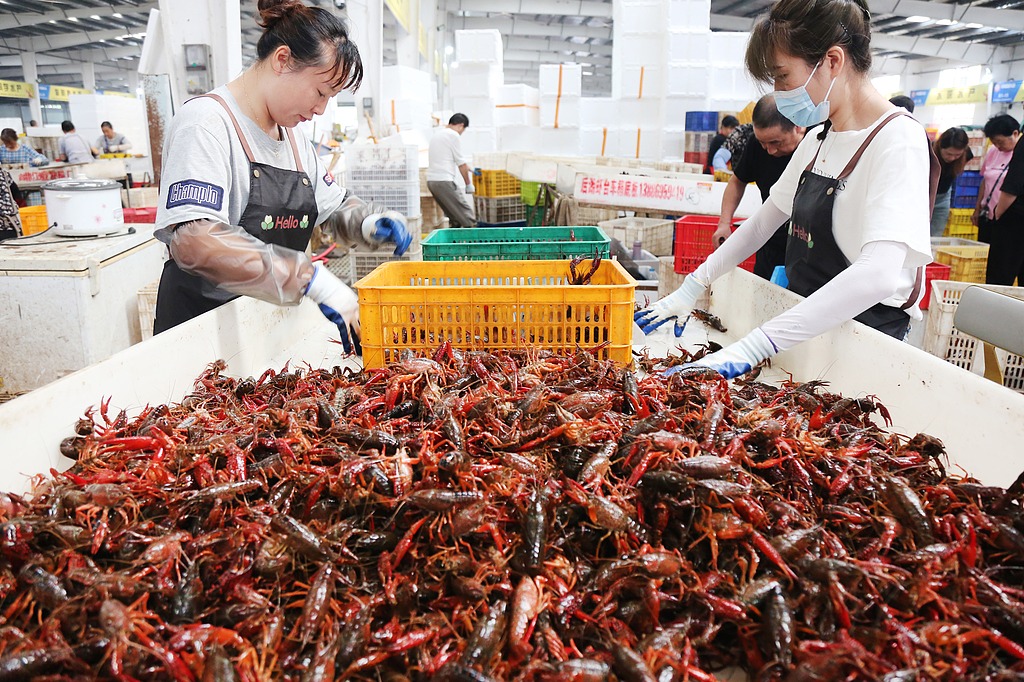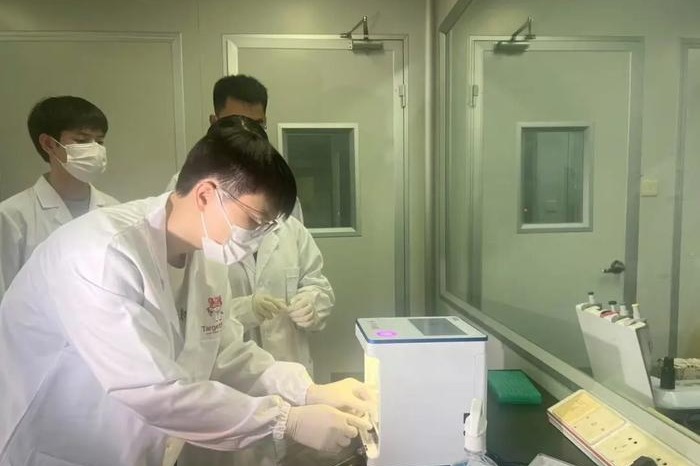Child stars face online perils and opportunities
Regulations should be tightened to ensure those at a vulnerable age are not taken advantage of, Wang Qian reports.

Like other 3-year-olds, Yang Yiyao bustles with energy and wants to be treated like a little person, which has inspired her parents to share funny moments on social media. Since the girl's first post in March 2021, her account on short-video sharing platform Douyin, managed by her parents, has earned more than 16 million followers, which makes the girl one of the top 10 child influencers, or kidfluencers, on the platform.
Her popularity online has led her partner with baby formula brand Feihe and diaper company Hengan Group. Some recent posts feature items, including smartphones, electric vehicles, child seats and infant beds. In the introduction to her Douyin account, Yiyao's parents write, "Thank you for liking and supporting me. I hope Yiyao brings joy to everyone!"
The toddler from Guizhou province reflects the soaring kidfluencer phenomenon. Behind it is a fast-growing market, which raises serious questions about the children's rights, parents' role and market regulation.
"With the popularity of social media, increasing numbers of parents have started to share their children's daily life online. Some have even made it into a business," says Li Yan, professor from the Shanghai Institute of Early Childhood Education at the Shanghai Normal University, adding that, when money is involved, it is a serious issue that needs comprehensive regulation for all parties involved.
A controversial case in 2020 brought the issue into the spotlight when videos featuring a heavily overweight 3-year-old girl eating high-calorie foods, sparked online outrage. At 35 kilograms, her weight was more than twice the average weight of children her age. In some of the videos, the parents urged the girl to eat more even when she refused to do so. Although her parents claimed they posted the videos for fun, the account was shut down later by the platform.
"In this case, the girl's rights were violated. Ignoring her physical and psychological health, the parents forced their daughter to participate in content creation, which is a kind of children maltreatment," says Chen Yuejia, a pre-school education specialist at the Nanjing Normal University.
Another viral video in 2019 recording a woman kicking her 3-year-old daughter during a photo shoot in Hangzhou, Zhejiang province, triggered public discussion on lack of regulation and oversight of the country's child modeling industry.
According to China's Law on the Protection of Minors, parents or other guardians are obliged to care of a child's physiological and psychological development, and should create a good family environment. In June 2021, the amended Law on the Protection of Minors took effect, which highlighted protecting children under 16 against addiction to online games, videos and social networks. It stipulates that children cannot open live broadcasting accounts.
In July 2021, the Cyberspace Administration of China passed a regulation to ban people under the age of 16 from appearing in content in online live-streaming platforms.
Last year, in Hengdian, a town in Dongyang county, Zhejiang province, known as "China's Hollywood", authorities issued a child actors' protection regulation.
Last month, the State Council released the regulations to protect minors in cyberspace, which will come into effect on Jan 1,2024. The aim is to create a healthy online environment for minors, protect their rights and interests, and provide legal support in this regard.
However, social media still embraces younger influencers. As platforms offer the ability to monetize posts, some parents and media agents treat children as performers to attract viewers. In cyberspace, these children act, reciting lines.
One 5-year-old boy surnamed Xue from Heilongjiang province has to follow the instructions of the contract with a multichannel network, or MCN, signed by his parents to build an online presence as a child cook.
"From opening the account on social media to the marketing strategy, the MCN has a comprehensive plan," the boy's father who refused to be named says, adding that the media company knows how to grab attention online.
So far, the boy has about 380,000 followers on Douyin with some 100 items sold in his account's counter. For an account opened in October 2021, the performance is ok, taking the boy a step close to his parents' dream — turning him into a child star.
Here comes the question: What does it means for the boy to become a star? Is he really happy doing this?
For the generation born in the internet age, Professor Li says building a virtual personality at an early age may affect a child's development of self-awareness.
"Feeling uncomfortable in front of camera is natural. When getting used to entertaining viewers or their parents during daily filming, these children could grow into people pleasers with poor self-esteem," she says, adding that they might like to try harder to make others happy, which will affect their offline life, so their online appearance is comparable.
In The Disappearance of Childhood, published in 1982, American author Neil Postman expresses worries over the decline of childhood as television changed socialization. He tried to discuss why the dividing line between childhood and adulthood was eroding in contemporary society, and why the social role of the child may well disappear in modern industrial society due to changes to communication technology.
The popularity of social media provides more confirmation of Postman's opinion. A report published in the periodical Children's Study in January shows that on social media, children are maturing faster these days, as they dress and speak like adults.
Exploring the social media experience of children aged 6 to 12, the study finds that they tend to pursue a mature and independent image online, and yearn for interaction with their peers, but are over-dependent on the likes or comments left under their posts.
"Besides benefits such as learning tools, communication channels and playmates, created by technology, we should pay more attention to the challenges and threats that our children face today," the study says.
According to a report released by the China Internet Network Information Center, the country had 191 million internet users aged under 19 as of June, accounting for 17.7 percent of all netizens.
As the internet has no boundaries, the risks behind kidfluencer culture are gaining attention across the world. In 2020, the French government passed a law regulating the commercial exploitation on platforms of children younger than 16. Under the law, child influencers will be protected by the French Labor Code in a manner similar to child models or child actors.
In the United States, the Coogan Act (named after child star Jackie Coogan) was signed into law in 1939 to regulate child labor in the entertainment industry. In August, Illinois became the first state in the US to enact a law ensuring that children who are shown on social media are paid for their work. According to the state government's website, the law "creates a private right of action for child influencers against their parents that featured them in videos and did not properly compensate them".
Even with these legal provisions, lawyer Wan Yan says protecting children needs to involve all parties, including parents, educators, platforms and the government.
"Parents and caretakers should play a role in helping their children balance fame and childhood. Digital platforms should take the social responsibility to protect the minors, and step up scrutinizing children-centered content," Wan says.

Today's Top News
- Japan must face up to its wartime past
- Vision turns county into green model
- China rolls out new visa type for young science talent
- Cambodia, Thailand urged to engage in dialogue, rebuild trust
- China stays at forefront of global digital growth
- Beautiful China vision has sown the seeds for the blossoming of an ecological civilization: China Daily editorial






























